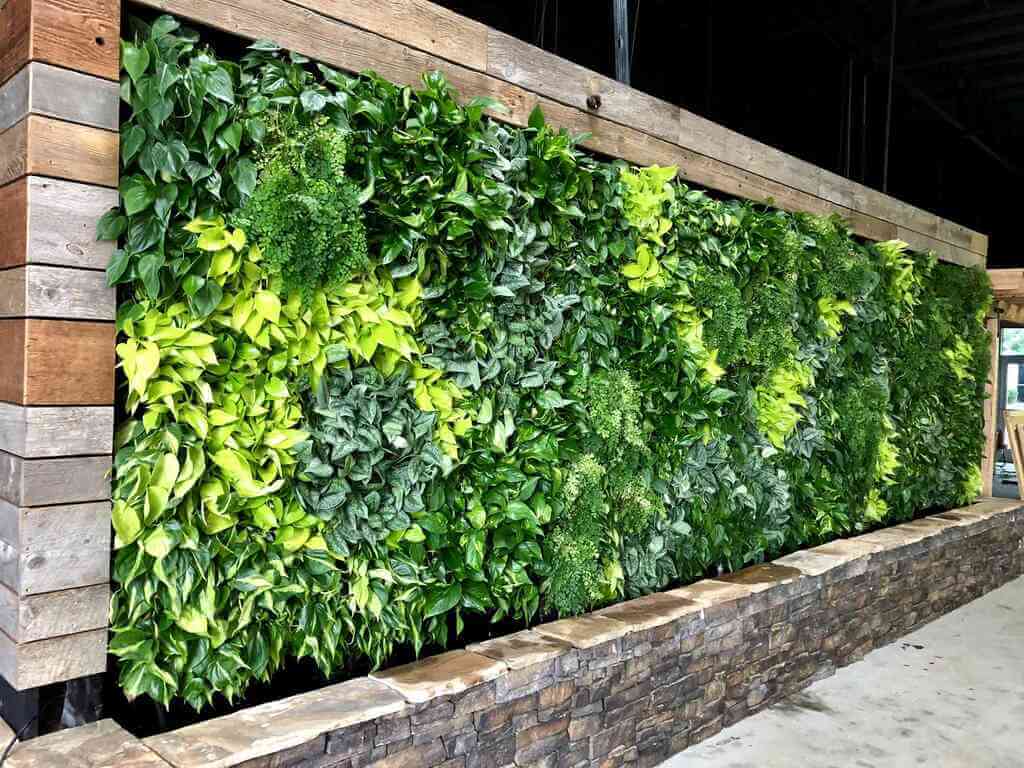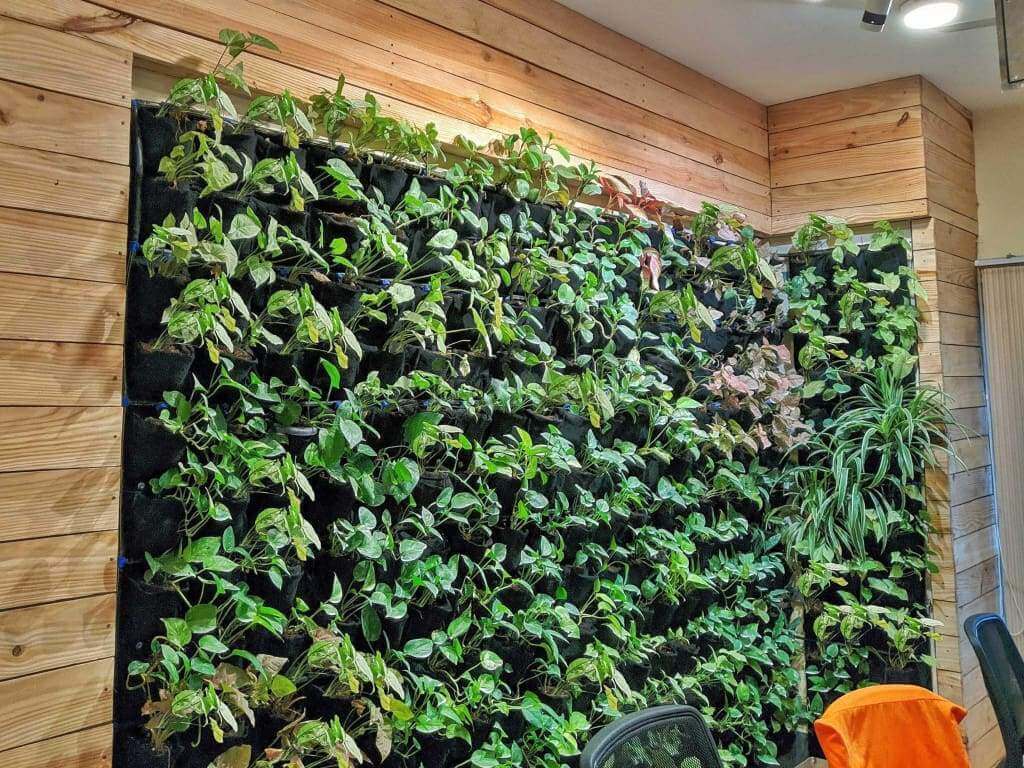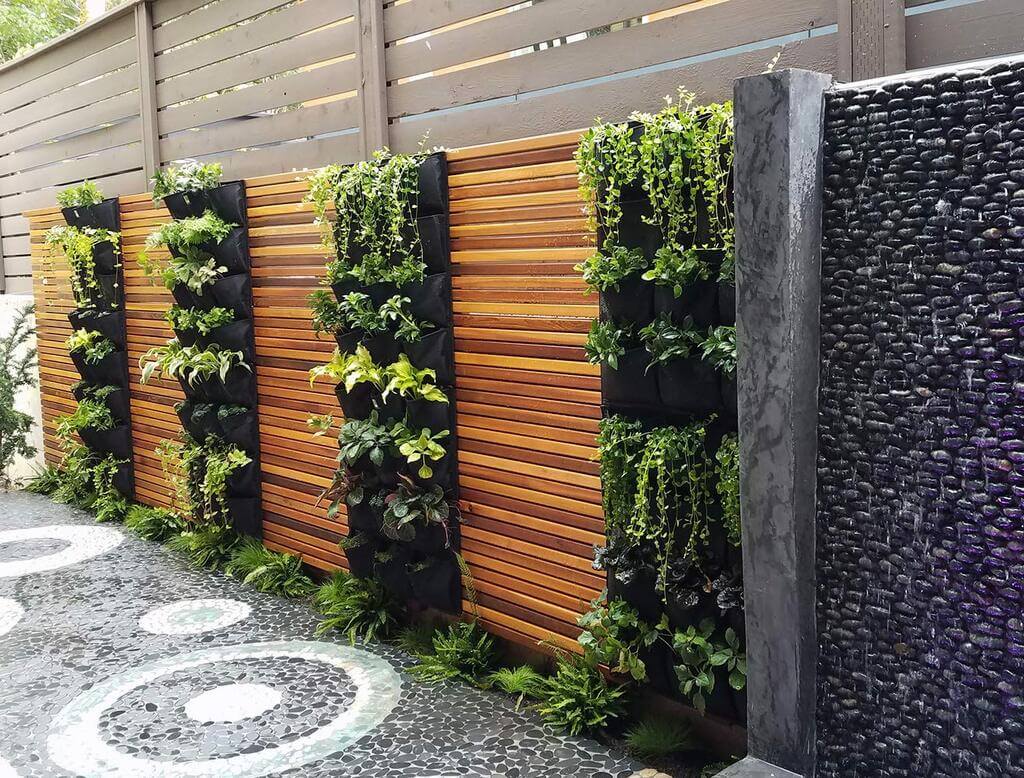Enjoying the beauty of greens and flowers is possible even when you have space restrictions. Vertical garden is a popular trend in the gardening world as they offer splendid aesthetics together with many economic and environmental benefits.
Most of the time, homeowners choose to work with a professional Liverpool gardening company for the creation of their vertical gardens. Whether you get professional assistance or not, it’s best to have more information on how to take care of your beautiful garden so it can stay healthy and vibrant.
In the following lines, we’ll share with you what you need to know about vertical gardening.
How to Create a Vertical Garden

The journey of vertical gardening always begins with the choice of a wall. Usually, the chosen wall is either not used for anything or it’s unsightly and the owner wants to cover it up with something beautiful. The foundation is created with the use of framing, plastic sheeting, and fabric. The idea is to create a sort of a sandwich with the three aforementioned materials. Better avoid using any metal, as it’s a heavy material. The plastic layer is used to protect the wall from getting water damage and it also acts as a support for the fabric layer.
Install the fabric that you will be used where the plants will live and feed off of. Felt carpet padding can be used, but keep in mind that it’s better to have a few layers of it for maximum results. An irrigation system needs to be considered too to help the moisture spread evenly throughout the fabric. The final steps are to add the fertilizer and choose the plants you want to grow.
Suitable Plants for Vertical Gardens

Most people prefer to have various types of succulent plants when it comes to vertical gardening. However, you can try experimenting with veggies, herbs, and some flowers. In case you are using pocket or container gardening, the possibilities are endless, as you can basically plant anything you can think of. Make sure you do your research on the maintenance of the plants beforehand so you can choose ones with similar necessities. Popular options that thrive well in vertical gardens are ferns, hostas, phlox, iberis, and blueberries.
The Perfect Time for Starting a Vertical Garden
The creation of the vertical garden can be done during any time of the year, based on the plants, flowers, or herbs you choose. The most common time, though, to start such a garden is when springtime is approaching since lots of plants and vegetables thrive better in the warmer temperatures and direct sunlight. However, don’t feel like you are limited in any way and you could easily start your indoor vertical garden during the wintertime if you prove the right setting and resources for your greenery.
Caring for & Watering Your New Vertical Garden

The care will entirely depend on the types of herbs or plants you are trying to grow. It’s better to select greenery that doesn’t require lots of maintenance and attention and can also thrive in colder seasons, especially if you want to have your vertical garden outdoors.
The watering of your plants will be different depending on their type. But if you set an irrigation system the right way, you won’t have to water them often.
Enjoy All the Perks of a Vertical Garden

Vertical gardens are an amazing way to transform the aesthetics of any building and to even make a whole city look greener if more people join the cause. Vertical gardens allow vining plants to grow strong and beautiful while taking less space as they won’t sprawl on the ground. They are a great alternative to gardens in unexpected places, which is far from the traditional but still gorgeous. You can grow the plants you love on fences and walls, in containers, and anywhere else you choose.
The vertical gardens are also great for creating more privacy and can be used to conceal some areas or hide secret spaces in your yard. They don’t require any substantial care and are easy to keep alive and beautiful. What’s more, the vertical gardens offer improved airflow and circulation of air around the plants.
Generally, taking care of a vertical garden is not complicated. You just need a bit of practice and some research before you get started to make sure your plants won’t be suffering as a result of improper care. Vertical gardens are usually better protected in terms of pests than regular ground gardens, they are welcoming to a wide variety of plants, play the role of a protective, and can also insulate your building with the added benefit of beauty. Harvesting is also made a lot easier since your vegetables will be easy to spot!
If you are looking for ways to add value to your environment, grow cleaner crops, and enjoy a healthy and beautiful garden, give vertical gardening a go. Make the first steps yourself or give the experts a call and enjoy the journey of vertical gardening!
Explore Further:

